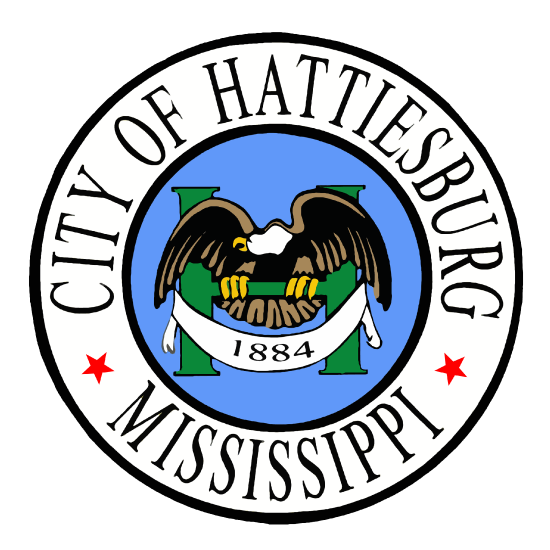Rumors & Myths
MEDIA INQUIRIES
For all media inquiries, please contact 601-447-5950 (text for best response) or email smccain@hattiesburgms.com.
LINKS & RESOURCES
Mississippi Department of Health
World Health Organization Coronavirus
Johns Hopkins: Map of Global Cases
NEED HELP OR INFO?
If you have questions or need additional information about coronavirus and Mississippi, the information below will provide you with a hotline dedicated to COVID-19.

COVID-19 Hotline: 877-978-6453
Monday – Friday, 8 a.m. – 5 p.m.
CORONAVIRUS HOME // RUMORS & MYTHS
MYTH: The City of Hattiesburg is under a curfew due to COVID-19.
This is False. The City of Hattiesburg has not issued a curfew in response to COVID-19, nor is the entire city under lockdown. The only orders that have been issued provide guidance to restaurants, bars, gyms, churches and funeral homes. Those details can be found below:
MYTH: The entire state of Mississippi is under quarantine and the National Guard has been ordered by the Department of Homeland Security to mobilize.
This is False.
MYTH: COVID-19 only affects older people.
This is False. People of all ages can be infected. Older people over 65, and people with pre-existing medical conditions (such as asthma, diabetes, heart disease) appear to be more vulnerable to becoming severely ill with the virus. It’s advised, however, that all take steps to protect themselves from the virus. Social distancing and washing hands will benefit everyone.
MYTH: You can protect yourself from COVID-19 by swallowing or gargling with bleach, taking acetic acid or steroids, or using essential oils, salt water, ethanol or other substances.
This is False and Potentially Dangerous. These recommendations DO NOT protect you from getting COVID-19, and some of these practices may be dangerous. The best ways to protect yourself from this coronavirus (and other viruses) include:
> Washing your hands frequently and thoroughly, using soap and hot water.
> Avoiding close contact with people who are sick, sneezing or coughing.
> In addition, you can avoid spreading your own germs by coughing into the crook of your elbow and staying home when you are sick.
MYTH: Hand dryers are effective in killing the coronavirus.
This is False. No. Hand dryers are not effective in killing COVID-19. To protect yourself against the virus, you should frequently wash your hands with an alcohol-based hand rub or wash them with soap and water – for no less than 20 seconds. Once your hands are cleaned, you should dry them thoroughly by using clean paper towels or a warm air dryer.
HOW TO PROTECT YOURSELF
The following are basic hygiene practices that can help prevent the spread of viruses like the coronavirus and the flu.
- Wash hands with soap and water for at least 20 seconds multiple times a day. An alcohol-based hand sanitizer can be used if soap and water are not available.
- Avoid touching eyes, nose and mouth with unwashed hands.
- Avoid close contact with people who are sick.
- Stay home when feeling sick.
- Cover your cough or sneeze with a tissue, then throw the tissue in the trash.
- Clean and disinfect frequently touched objects and surfaces.
I HAVE SYMPTOMS. WHAT DO I DO?
The symptoms that are currently being seen with COVID-19 are fever and respiratory symptoms such as cough and shortness of breath.
- Stay home from work or school until you are free of fever, signs of a fever, and any other symptoms for at least 24 hours and without the use of fever-reducing or other symptom-altering medications.
- Seek medical attention if you have reason to believe you have been exposed to coronavirus or influenza. Call your healthcare provider before visiting a healthcare facility.
FREQUENTLY ASKED QUESTIONS
You probably have questions like the following (and more). Click the button at the bottom of this box to read through our FAQ (which is updated as needed).
- What are Coronaviruses?
- How is coronavirus (COVID-19) transmitted, and when will someone get sick if they’re exposed?
- Should I wear a facemask to prevent COVID-19?
- How can I protect myself from COVID-19?
WHAT IS CORONAVIRUS (COVID-19)?
SOURCE: World Health Organization
Coronaviruses (CoV) are a large family of viruses that cause illness ranging from the common cold to more severe diseases such as Middle East Respiratory Syndrome (MERS-CoV) and Severe Acute Respiratory Syndrome (SARS-CoV). A novel coronavirus (nCoV) is a new strain that has not been previously identified in humans.
SYMPTOMS OF CORONAVIRUS (COVID-19)
Common signs of infection include respiratory symptoms, fever, cough, shortness of breath and breathing difficulties. In more severe cases, infection can cause pneumonia, severe acute respiratory syndrome, kidney failure and death.
Standard recommendations to prevent infection spread include regular hand washing, covering mouth and nose when coughing and sneezing, thoroughly cooking meat and eggs. Avoid close contact with anyone showing symptoms of respiratory illness such as coughing and sneezing.
[SOURCE: World Health Organization]
HOW DOES CORONAVIRUS (COVID-19) SPREAD?
Person-to-Person
Coronavirus is thought to spread mainly from person-to-person.
- Between people who are in close contact with one another (within about 6 feet).
- Through respiratory droplets produced when an infected person coughs or sneezes.
These droplets can land in the mouths or noses of people who are nearby or possibly be inhaled into the lungs.
Can someone spread the virus without being sick?
- People are thought to be most contagious when they are most symptomatic (the sickest).
- Some spread might be possible before people show symptoms; there have been reports of this occurring with this new coronavirus, but this is not thought to be the main way the virus spreads.
Spread from contact with contaminated surfaces or objects
It may be possible that a person can get COVID-19 by touching a surface or object that has the virus on it and then touching their own mouth, nose, or possibly their eyes, but this is not thought to be the main way the virus spreads.
[SOURCE: Center for Disease Conrol]



